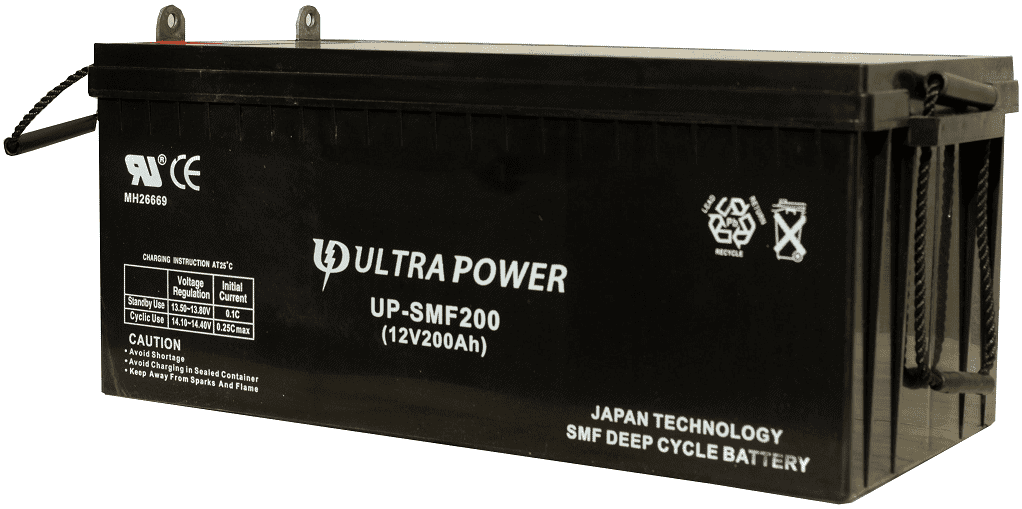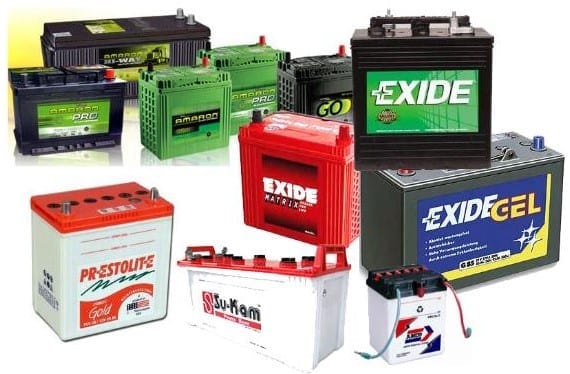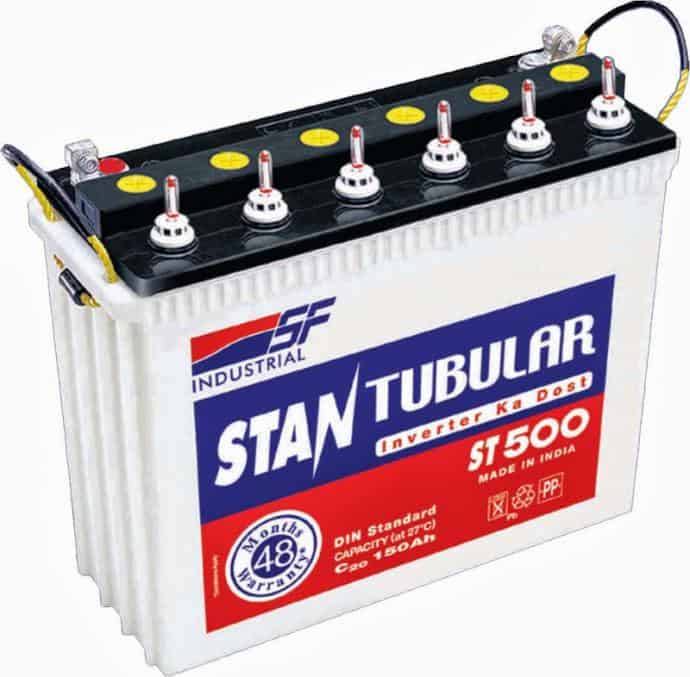An Inverter battery is a type of battery designed to better handle the power requirements of a power backup supply system. It is different from a normal car battery. Although a car battery can be used with an inverter it is not ideal. Inverter Battery Price in Nigeria starts at around 130,000 Naira.
Inverter Battery Price
- 100Ah / 12V – 130,000 Naira to 280,000 Naira
- 150Ah / 12V – 155,000 Naira to 300,000 Naira
- 200Ah / 12V – 190,000 NGN to 300,000 NGN
- 220Ah / 12V – 245,000 NGN to 350,000 NGN
- 250Ah / 12V – 300,000 NGN to 500,000 NGN
- 500 Ah / 2V – 90,000 NGN to 150,000 NGN
- 600 Ah / 2V – 94,000 NGN to 150,000 NGN
- 750 Ah / 2V – 155,000 NGN to 200,000 NGN
- 1500 Ah / 2V – 270,000 Naira to 350,000 Naira
- For the latest prices, check out Jumia, Jiji.
How is an Inverter Battery Different
Power inverters are devices that convert DC current from a battery to AC current for our home or office appliances. So, under normal operation, an inverter will require a large amount of current to supply your appliances over a long period of time.
This means that a battery used for an inverter must be able to supply a reasonable amount of current over long periods of time.
A car battery however is designed for mainly starting the car engine. This means that once the car is on the move there is very little else for the battery to do except to recharge and maybe power the car electronics, which are mostly low power.
This is why a car battery can’t compete with an inverter battery. A normal car battery is designed to deliver a large amount of current over a short period of time (i.e. start the car), while an inverter can supply a large amount of power over a long period of time.
This means that a car battery will not have enough stamina to handle inverter loading, so always buy an inverter battery for your power inverter.
Deep Cycle Battery vs Starter Battery
An inverter battery is a deep-cycle battery. It is designed to discharge most of its capacity unlike a starter battery (car battery) which is designed to deliver a high amount of current over a short time to start the engine.
A deep-cycle battery can discharge a large proportion (40% to 80%) of its charge many times and still be fully charged. A car battery on the other hand requires charging once it does its job and if deeply discharged will die much faster than a deep-cycle inverter battery.
While a deep cycle battery can last 2 to 3 years when used with a power inverter a car battery will struggle to go 6 months.
Inverter Battery Features
From the discussion, it is easy to conclude that the first feature to look out for is that it has to be the deep cycle type. This will ensure it supplies the required power without reducing the longevity of the battery.
Types of Inverter Battery
You basically have two types of inverter battery to choose from; the sealed-maintenance-free (SMF) battery and the tubular battery. The SMF battery is the most convenient type. You just connect it and forget it as it requires no maintenance. It is also safe indoors since it is sealed and emits no harmful gases. They last 2 to 3 years.

Tubular batteries are more complicated and require little maintenance. Unlike the SMF battery that you install and forget, you need to remember to at least top up the water of your tubular battery (like every 6 months or as needed).
Having said this, I have to make it clear that a tubular battery is not the same as a normal car battery, they are in fact deep cycle battery which makes it suitable as an inverter battery.
Because a tubular battery is not completely sealed and may emit some gases during normal operation, I will not advise that you install a tubular battery indoors. It will be better outside where there is good ventilation.
A tubular battery lasts longer (4 to 5 years) with some claiming up to 8 years of use. They may also be cheaper compared to an SMF battery. However, I will advise you to go for an SMF battery despite the advantages of the tubular battery.
The SMF battery is more practical for an average consumer who does not need the hassles. Also, the SMF battery seems to be dominant in Nigeria. However, if you have the stomach and the heart for adventure, a tubular battery is a great value for money.
Deep cycle batteries can also come in AGM (Absorbed Glass Mat) or Gel types.
Inverter Battery Capacity
The energy capacity of an inverter battery is measured in Ampere-Hour (AH). 100AH and 200AH are the most popular capacities of a 12V battery in Nigeria, but you may also see values like 150AH and 210AH.
You can also find 2V inverter batteries for inverter and solar applications rated at 500 AH, 1000 AH, and 1500 AH. The 2V types are used in solar inverter applications or in applications where space economy is important. Such portable batteries can be easily mounted on racks.
In a nutshell, the capacity of a deep-cycle battery determines how long your inverter can supply backup power. For example, if a 100AH battery can supply a given load for 4 hours, a 200AH battery will power the same load theoretically for 8 hours.
Also, see Lumos Mobile Electricity.
Best Inverter Battery Brands
There are many battery brands in Nigeria to choose from with varying degrees of quality. Your best bet is to stick with products from inverter manufacturers.
Best Inverter Battery brands in Nigeria include Luminous, Mercury, Sukam, Quanta, Prag, Bluegate, MultiPower, and Nexus. You can buy any of these brands if you want a reliable system.
You can also buy at local stores in Lagos, Abuja, Port Harcourt, Enugu, and other major cities across Nigeria.
You can buy an inverter battery from leading online stores in Nigeria or other leading retailers of power solutions in the Country. The price of the 100AH inverter battery starts at around 130,000 Naira, while a 200AH capacity price starts at around 190,000 Naira.
Power Related Topics
- Sukam Inverter Price in Nigeria
- MultiPower Inverter Price in Nigeria
- Buy a Generator
- Bluegate Inverter
- Mercury Inverter Price in Nigeria
- Compare Inverter Prices in Nigeria
- Prag Inverter
- Solar Charge Controller
- Solar Panel
- Inverter Prices
- Luminous Inverter Price in Nigeria
- How to Buy an Inverter
- Solar Inverter








